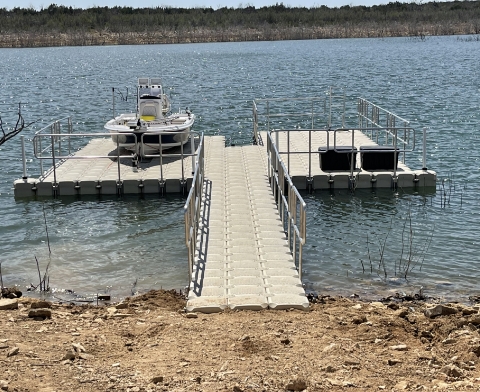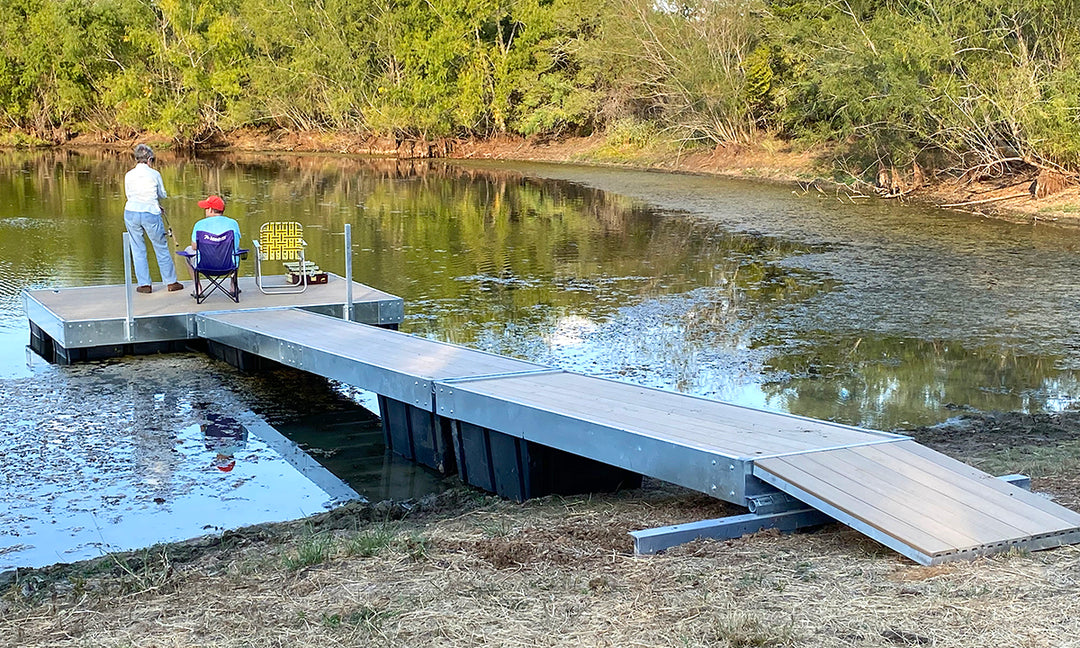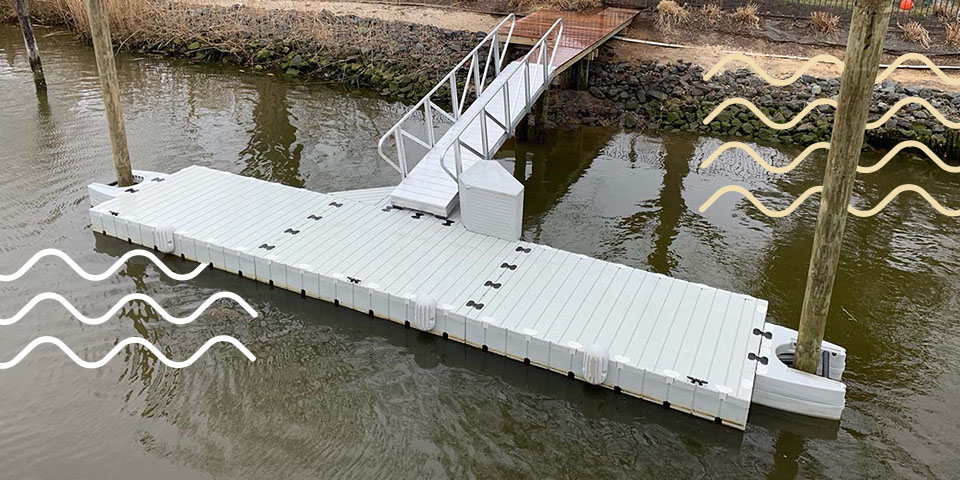Top Reasons to Partner with a Reliable Floating Dock Company for Your Following Work
Top Reasons to Partner with a Reliable Floating Dock Company for Your Following Work
Blog Article
The Ultimate Overview to Picking the Ideal Floating Docks
Picking the ideal floating dock needs an extensive understanding of various components that affect both efficiency and long life. Variables such as dock kinds, materials, and vital attributes substantially influence your decision-making process.
Understanding Floating Dock Kind
When picking a drifting dock, it is important to recognize the various types offered, as each offers unique purposes and applications. Floating docks largely come under three groups: modular, stationary, and pontoon docks.
Modular docks are composed of individual areas that can be quickly constructed or reconfigured, making them ideal for altering water degrees and diverse usages, such as leisure tasks or commercial operations. Their versatility enables personalization based on certain requirements.

Pontoon docks are identified by their buoyant structure, commonly composed of multiple pontoons that give security and assistance. They are particularly fit for larger vessels and are generally utilized in marinas or for waterside residential properties. Understanding these kinds help in choosing the most ideal floating dock to satisfy particular requirements, ensuring ideal capability and safety and security.
Trick Materials for Longevity
Picking the ideal materials for floating docks substantially impacts their longevity and longevity. One of the most common materials consist of wood, plastic, metal, and composite materials, each offering unique advantages and restrictions.
Wood, frequently favored for its visual charm, requires routine upkeep to endure moisture and degeneration. Pressure-treated lumber can enhance resistance to rot, yet it may still be vulnerable to parasites and weathering.

Plastic docks, made from high-density polyethylene (HDPE), are immune to rust, UV radiation, and influence, making them a prominent choice for coastal environments. Their light-weight nature additionally assists in easy installation and moving.
Steel docks, commonly constructed from aluminum or galvanized steel, give extraordinary strength and toughness. They are immune to corrosion, especially when treated, but may require extra insulation to stop warmth build-up in warm environments.
Composite materials, incorporating timber fibers and plastics, supply the benefits of both wood and plastic, standing up to moisture and fading while calling for very little upkeep. - floating dock builder
Ultimately, the option of materials must align with ecological problems, intended use, and maintenance preferences to make sure the floating dock continues to be functional and cosmetically pleasing with time.
Necessary Features to Consider
While the option of materials is important, considering necessary attributes for floating docks is just as important to ensure ideal performance and individual contentment. One key function to analyze is the dock's buoyancy capability, which figures out how much weight it can sustain without submerging. dock company. This is crucial for suiting watercrafts, personal boat, and also recreational activities
Furthermore, mobility is a considerable consideration. Depending upon your demands, you may desire a dock that is simple to transport and dismantle, especially if you intend to transfer it seasonally. Stability is another important attribute; a properly designed floating dock must reduce motion caused by wind and water currents, offering a safe and secure system for customers.
Safety functions, such as non-slip surfaces and rounded edges, are likewise crucial to protect against accidents, specifically in wet problems. Moreover, think about the schedule of devices, such as cleats, ladders, and bumpers, which can enhance here are the findings the performance of your dock.
Setup and Upkeep Tips
Establishing and keeping a drifting dock calls for mindful planning and interest to detail to ensure its durability and optimum efficiency. Begin by selecting an appropriate area that reduces direct exposure to solid currents and waves, which can trigger damage. Make sure that the water depth is enough for the dock's height and that it is anchored firmly to stop activity.
Throughout installation, comply with the producer's standards very closely, as improper assembly can compromise stability. Use top quality products resistant to rust, such as aluminum or treated timber, to boost toughness. Routinely evaluate all elements, consisting of drifts, connectors, and securing systems, for indications of damages or wear.
Upkeep is critical for expanding the life of your dock. Clean the surface areas occasionally to stop algae buildup and look for any loose fittings that may require tightening up. If your dock makes use of flotation gadgets, ensure they stay intact and complimentary from leaks. In addition, think about applying safety finishings to wooden More Info elements to decrease weathering impacts. By adhering to these installment and maintenance ideas, you can take pleasure in a trustworthy and functional floating dock for several years ahead.
Budgeting for Your Dock
Budgeting for your dock is a vital action that can substantially affect your overall complete satisfaction and financial investment in a waterfront residential or commercial property. Establishing a clear budget plan helps you navigate the different alternatives readily available and ensures you make notified choices that line up with your financial capacities.
Begin by establishing the dimension and design of the dock you need, as these elements will significantly influence the cost. Floating docks can vary substantially in cost, depending on materials, buoyancy, and functions like ramps and devices. Research study different makers and suppliers to contrast rates and comprehend the marketplace worth.
In enhancement to first expenses, take into consideration ongoing expenses such as upkeep, insurance, and prospective fixings. Allot funds for these reoccuring prices to avoid shocks down the line. It's additionally sensible to allocate any kind of necessary permits or examinations, which may be required by neighborhood policies.
Last but not least, bear in mind the potential roi. A tactical dock can enhance your home's value and appeal, offering a positive monetary effect in the lengthy term. By budgeting effectively, you can guarantee that your dock satisfies your demands without endangering your financial stability.
Conclusion
In conclusion, picking the optimal floating dock necessitates a comprehensive assessment of various elements, consisting of dock kinds, materials, crucial functions, and installation procedures. anchor Mindful consideration of financial constraints will further make certain an audio investment.

While the choice of materials is crucial, considering vital attributes for floating docks is similarly crucial to ensure optimal performance and user contentment.Setting up and maintaining a floating dock needs mindful planning and interest to information to guarantee its longevity and ideal performance. Floating docks can differ significantly in rate, depending on materials, buoyancy, and attributes like ramps and accessories.In final thought, selecting the suitable floating dock requires a complete assessment of different variables, including dock types, materials, vital attributes, and setup processes.
Report this page